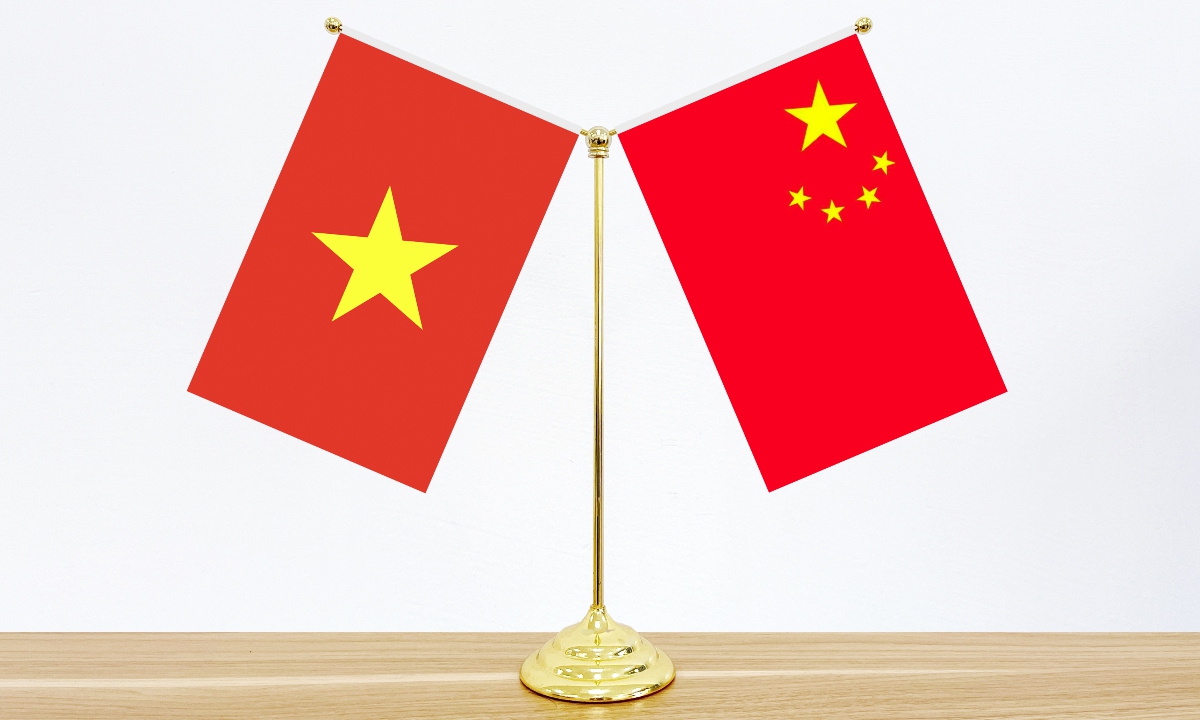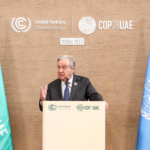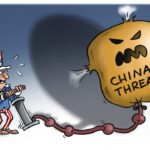At the year-end of 2023, China’s head-of-state diplomacy turns the spotlight on Vietnam. Xi Jinping, general secretary of the Communist Party of China (CPC) Central Committee and Chinese president, will pay a state visit to Vietnam from December 12 to 13, a trip which is expected to chart course for future growth of bilateral relations, inject vitality into sound bilateral political mutual trust and mutually beneficial cooperation.
Xi’s visit is at the invitation of General Secretary of the Communist Party of Vietnam Central Committee Nguyen Phu Trong and State President of the Socialist Republic of Vietnam Vo Van Thuong.
On Monday, Vietnam+ published an article entitled “Chinese top leader’s Vietnam visit to create new momentum for bilateral ties,” commenting that “the visit will make a prominent landmark and be an important highlight on the occasion of the 15th anniversary of the establishment of the Vietnam-China Comprehensive Strategic Cooperative Partnership.”
For a country’s top leader, the destination of state visits at the beginning or the end of a year has strategic considerations and implications, Shen Yi, a professor at Fudan University, told the Global Times.
Shen said Vietnam being the destination of Xi’s visit at the 2023 year-end conveys a clear message: China attaches great significance to neighboring countries, and to those who have responded goodwill toward China’s principle of amity, sincerity, mutual benefit and inclusiveness in relation to its neighbors.
Mutual visits
In November 2015, Xi visited Vietnam for the first time as the head of state and top leader of the CPC. When he met Nguyen Phu Trong, Xi’s opening remark was, this is a promise between the two of us, and also my commitment, to have the mutual visits of the general secretaries of our two countries within a year.
Two years later, when Xi landed in Vietnam the second time in November 2017, the top leaders of the two parties and the two countries had realized mutual visits within a single year twice in three years. And that was Xi’s first overseas trip on the heels of the landmark 19th CPC National Congress.
On October 31, 2022, Xi welcomed Nguyen Phu Trong for his official visit to China, which was the first foreign leader’s visit to China right after the conclusion of the 20th CPC National Congress.
Then comes the latest visit, starting on Tuesday, which will be the third time for Xi and Nguyen Phu Trong to realize mutual visits in about a year.
As Member of the Political Bureau of the CPC Central Committee and Foreign Minister Wang Yi said on December 1 during his visit in Hanoi, the two parties and two countries have seen close high-level exchanges and frequent contacts like visiting relatives, which fully demonstrates the high level and special nature of China-Vietnam relations.
Special ties
“Vietnam-China relations have many advantages that are difficult for any other country to have,” Viet Hoang, senior lecturer at International Law Faculty, Ho Chi Minh City University of Law, told the Global Times.
Hoang said as neighbors with land and sea borders, trade, investment and people-to-people exchanges between the two countries are easier to develop than with other countries that aren’t as geographically close; More importantly, it is difficult to find any bilateral relationship that, in addition to the official channels of the state and the people, has a stable, powerful and effective exchange channel like the exchange channel between the Communist Party of Vietnam and the Communist Party of China.
Hoang also noted that the two countries share many similarities, creating favorable conditions for cultural exchange activities such as tourism and study abroad programs between their respective peoples.
“I believe President Xi’s visit will boost more people-to-people exchanges between China and Vietnam,” a Chinese tourist, who was visiting Van Mieu-Quoc Tu Giam (Temple of Literature, which is also translated as Temple of Confucius), told the Global Times on Monday.
In Hanoi, Van Mieu-Quoc Tu Giam is one of the historical sites with the most Chinese characteristics. It was Vietnam’s first national university from 1076 to 1779, where students learned Chinese. It now houses the statues of Confucius and his disciples.
The tourist shared his new discovery with the Global Times. He took out a 100,000 VND (Vietnamese DONG) banknote, and said, look, the temple of literature is printed on the back side of the banknote, adding “this is a proof our bond has a long history and that the bond is still close.”
“It’s big news here!” A Vietnamese told Global Times in Hanoi on Monday when asked if she knew Chinese leader will embark on a visit to Vietnam. She said she is looking forward to more cooperation with China and to more Chinese people coming to Vietnam. In her eyes, more cooperation means mutual prosperity and better life.
US distorted angle
As the visit approaches, some US media activated their distorted analysis. The VOA wrote on December 8 that the visit comes as “Hanoi-US Relations Warm.” On the same day, The Diplomat commented, “The trip comes on the heels of the Vietnamese government’s significant diplomatic upgrades with the US and Japan.”
They refer to US President Joe Biden’s visit in Vietnam in September which lifted Washington to Hanoi’s comprehensive strategic partner.
The narrative suggests as if China had little interaction with Vietnam in the past, and only rushes to the Southeast Asian country after US visit, turning a blind eye to the frequent contacts between China and Vietnam like visiting relatives in recent years and regular mutual visits since the normalization of ties between the two, Shen told Global Times.
China has been seriously developing ties with Vietnam for the long term, unlike the US, which aims to use Hanoi to gain its selfish profits when needed, and sets it aside when not. This is the biggest difference between China-Vietnam ties and US-Vietnam relations, Shen added.
China-Vietnam ties eye mutually beneficial cooperation, not the third party, experts said.
On Monday, Chinese Foreign Ministry spokesperson Mao Ning said that China and Vietnam are both socialist countries on a path of reform and transformation in keeping with our respective national realities. Strengthening unity and friendship and deepening mutually beneficial cooperation between the two countries serves the common interests of both sides, and contributes to peace, stability and prosperity of the region and beyond.
Mao added that a shared path and a shared future is the hallmark of China-Vietnam relations. An elevated bilateral relationship is a natural result in accordance with the overwhelming trend.
Nguyen Tang Nghi, vice dean in act at faculty of international relations, College of Social Sciences & Humanities, Vietnam National University of Ho Chi Minh City, told the Global Times that the strong and manifold relationship between Vietnam and China has been cultivated and developed by generations of leaders from both countries. Vietnam has no reason to form alliances with third parties to counter China, nor does it have any reason to allow other countries to use Vietnam as a tool to confront China.
The prosperity and stability of the Vietnam-China relationship not only hold special significance for the people of both countries, but also have an impact on the security, political, and economic landscape of East Asia, Nguyen Tang Nghi said.













